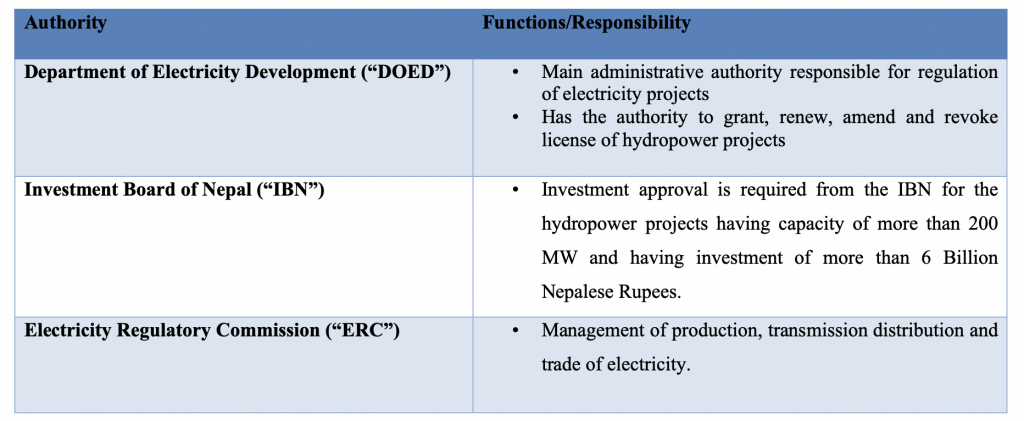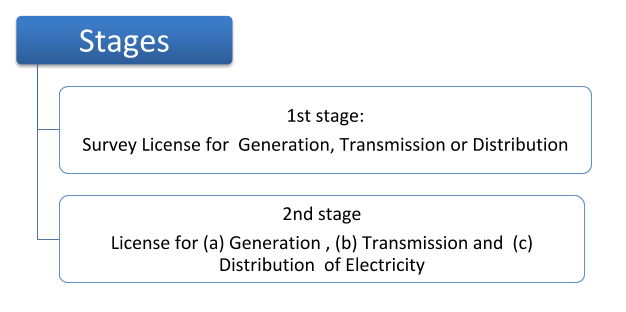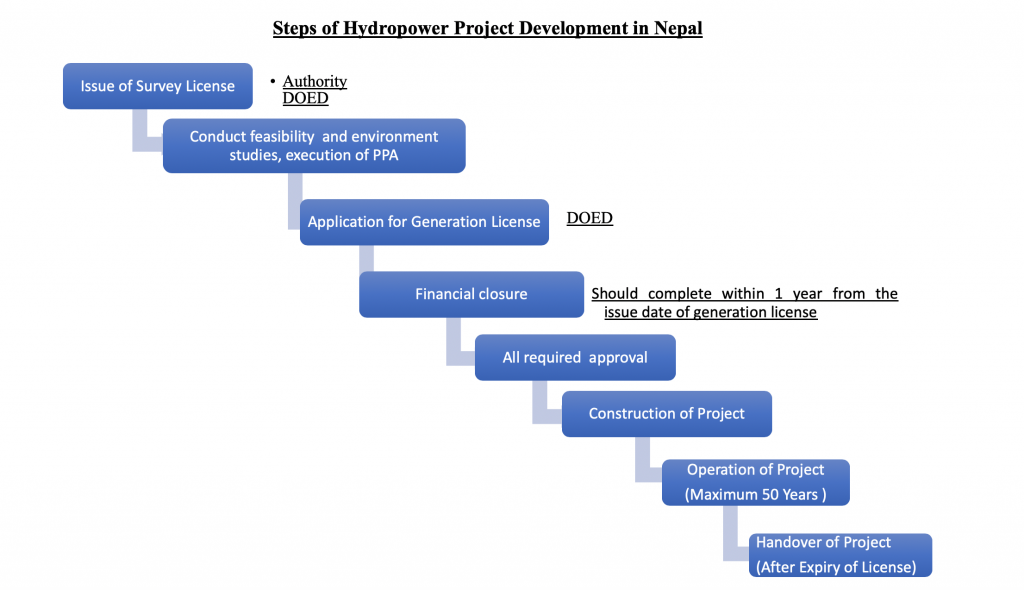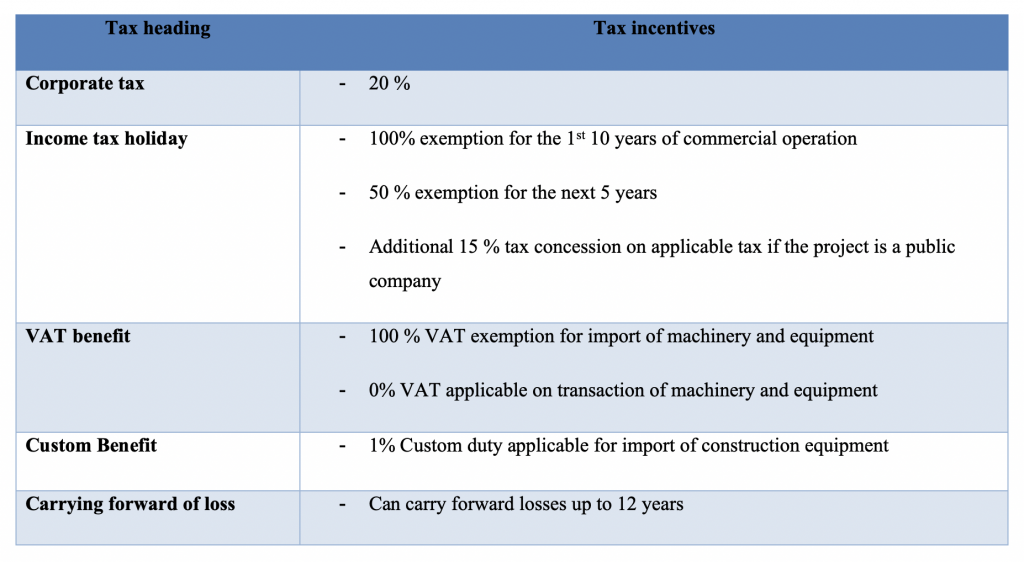Hydropower project development in Nepal
7 April 2019
This article covers (a) laws governing the hydropower project of Nepal, (b) modes and licensing of hydropower project development, and (c) incentives for the hydropower project in Nepal.
1. Law Governing the HydroPower Sector
The primary law governing the hydropower project are:

2. Governing Authority:
The table below sets out the main authorities that govern the development of hydropower projects along with their functions:

3. Modes of development of hydropower projects:
Hydropower projects are developed on Build Own Operate and Transfer Model (“BOOT”). There are three modes of development of hydropower projects in Nepal:

3.1 Mode 1 : Obtaining license pursuant to Section 3 of Electricity Act
3.1.1 The licensing process for hydropower projects are of two stages. License is provided on first come first serve basis.

Generally, licensing regime in Nepal for hydropower follows two stage licensing process:
- investors need to obtain survey license for generation/ transmission/distribution of electricity (Survey license is issued to conduct the feasibility and environmental study of the hydropower project) ,
- if the project is found to be feasible technically, environmentally and financially, then relevant generation/ transmission/ distribution license is issued.
Please note separate licenses are required for-(a) generation of electricity, (b) transmission of electricity, and (c) distribution/sale of electricity.
3.1.2 Tenure of Licenses

3.2 Entering into Agreement with the Government of Nepal under Section 35 of the Electricity Act
One may also generate, transmit or distribute the electricity upon conclusion of an agreement with the Government of Nepal pursuant to section 35 of Electricity Act. Section 35 grants government to develop hydropower project by concluding agreement. However, Electricity Act is not clear regarding its scope and use of rights guaranteed by the Section 35. In practice, the Government of Nepal calls for competitive bidding project and then approves the company, which operates the project subject to the terms and conditions of the agreement.
3.3 Competitive Bidding Project
A company can acquire project through the competitive bidding process. Competitive bidding is applicable on following projects:
- Project studied by GON or institution owned by an entity of the Government of Nepal; and
- Projects which license are cancelled due to various reasons (a) non-completion of financial closure, (b) non-fulfillment of terms and condition prescribed by the license etc.
The government may call for those projects. Based on the notice application has to be submitted.to the MoE viaDOED. After review of the application, approval for the project is granted based on the competitive bidding.
4. Steps of Development of Hydropower Project:

5. Expiry of License Period :
The maximum license period for a hydropower project is 50 years. However, as matter of practice, the DOED grants generation license for only 35 years. Extension of the generation license is upon the discretion of the DOED.
After the expiry of license all the ownership of the project need to be transferred to GON. After the transfer developer may also operate the project by executing the agreement with GON.
6. Non-nationalization during the license period:
The Government of Nepal cannot nationalize the land, building, equipment and structure related to hydropower project during the licensing period.
7. Sale of Electricity:
Power generated from a project can be (a) sold locally, or (b) exported to a foreign country. Electricity can be sold through:
- connecting to the national grid; or
- independently without using the national grid.
8. NEA as the monopoly holder:
In practice, NEA is the sole buyer of electricity since its inception. Electricity can be exported to a foreign country after entering into an export agreement with the Government of Nepal.
9. Foreign Investment in Hydropower Sector:
100% foreign investment is allowed in the hydropower sector. However, as a matter of practice, hydropower projects have started to issue shares to local community and other general public.
10. Fiscal incentives for hydropower projects:

11. Related Article
For article related to “Foreign Investment in Hydropower Sector” please go through the link mentioned below:
Link: Foreign Investment in Hydropower Sector
Disclaimer: This article is for informational purposes only and shall not be construed as legal advice, advertisement, personal communication, solicitation or inducement of any sort from the firm or any of its members. The firm shall not be liable for consequences arising out of any action undertaken by any person relying on the information provided herein.



